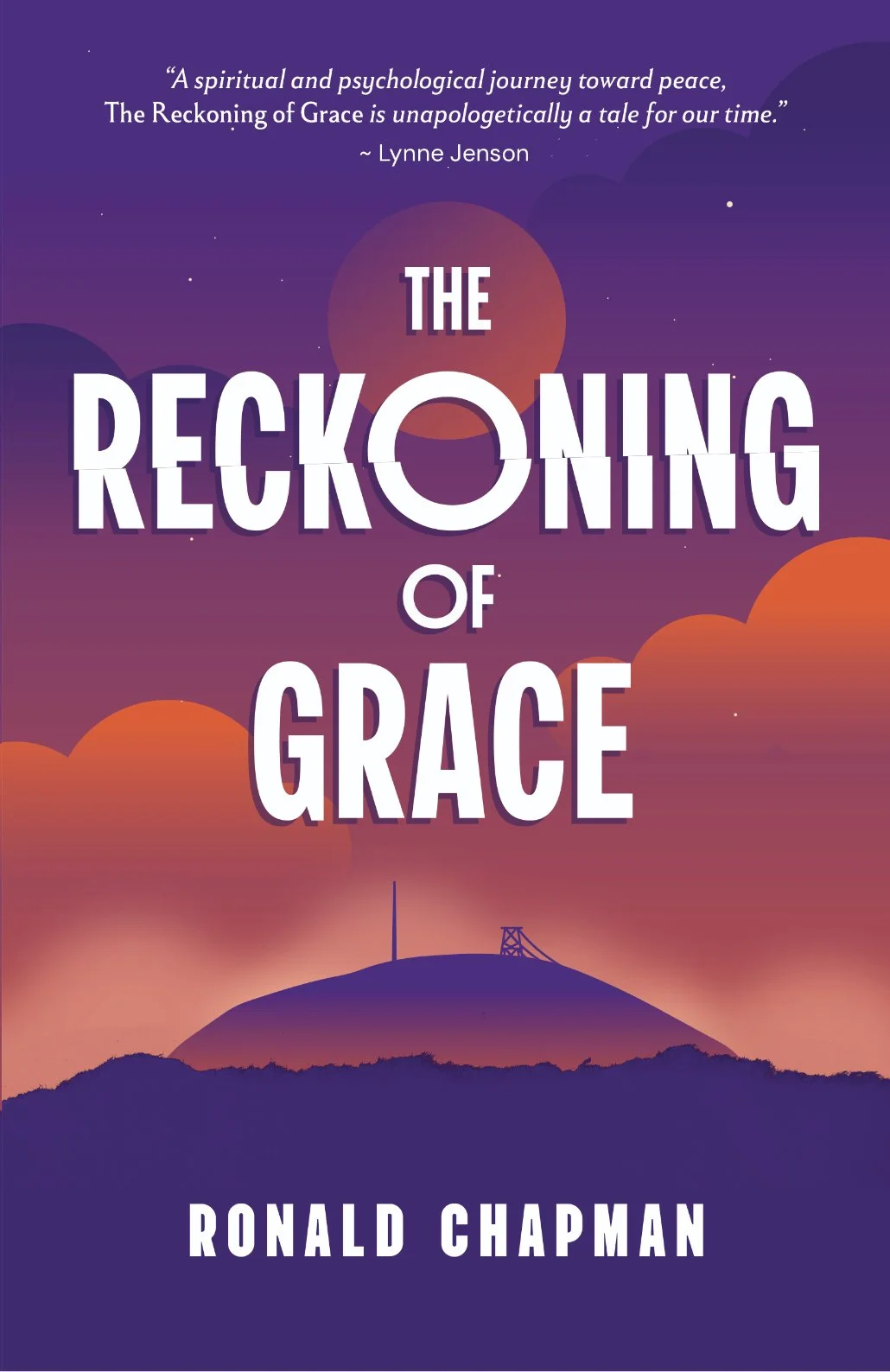
Transformation
Deep psychological and spiritual work requires and enables a new version of ourselves to be revealed and then to be realized.
Transformation is almost a miraculous thing, though it can become replicable and reliable. The heart of the problem is that initially we cannot see, or perhaps even imagine what it would be like to transcend something. After all, if we’ve lived our entire life believing something to be true or seeing ourself or our world through a certain perspective, it can be quite difficult to imagine something beyond one’s reality.
Furthermore, we must acknowledge that one’s entire life and activities are often dependent on one’s personal paradigm. It’s been described as leaving a warm and well lit room to enter a dark hallway, uncertain what one will find in navigating the darkness. Regardless, there are echoes of our most heartfelt desires constantly calling to us. Notions like freedom, harmony, and unconditional love are our words for such echoes. And make no mistake, we must follow those callings.
Sometimes we can use these senses to guide us like tuning forks. At other times, we must be more deliberate as we move toward transcendence. Regardless, we cannot and should not ignore the callings of the Soul and the Visions of our Desire.
Have you recently had a major life change? Do you feel lost? Do you feel stuck and need to push through? Who would you be and what you would do after being transformed? What do the echoes and stirrings in your life suggest you are called to? What are you willing to relinquish in order to follow the call? How ready are you to realize what you can become?
FROM THE SEEING TRUE BLOG
Below you will find blogposts that relate to Transformation. The free content and materials here are an expression of Ron's commitment to you and your transformation. If you would like to work with Ron, click HERE. To receive these posts weekly in your email, subscribe HERE.
Stories shape us, heal us, and call us to transformation. That’s the power at the heart of Ronald Chapman’s Saga of Grace series.
My friends, how many of you have been on a stage and completely lost all your materials? Show of hands? Yeah, that's the story I want to tell…
There is a simple truth that is hiding in plain sight in our culture, though it is a common reality for those in recovery. While it hurts my heart that the carnage of a bottom injures many, radical acceptance is the only starting point.
Our western world is obsessed with simplicity even as the many complexities of reality show us that things are not simple. Somewhere between incomprehensible complexity and delusional over-simplification, there is a way.
At some point in time, the phrase we might use is that “we come to the place where we're living fully”. Why does that matter? Well, if you look at the developmental research, here's what we know: a lot of us don't ever get to living fully.
The flywheel is a mechanical device where you turn it once and it's really hard, but then the second time it's easier, the third time it's easier, still easier on the fourth time, and eventually you get some momentum going. Well, our lives, our blossoming, our acceleration is exactly like that.
If you're not pouring forth that light, if you're not blossoming, if you're not thriving, then the question is always: what's preventing that? What's the barrier? And here's a real secret - the barrier is rarely on the outside.
One of the interesting features of our current, information-fueled world is the challenge it places upon how to navigate it all. Not just the mass and speed of it, but the conflicting information, and the rapidly multiplying misinformation, and the incredible change it all represents.
There's a powerful story behind Amazing Grace. If you're not familiar with John Newton, the story goes that he had a profound conversion experience—not just a Christian awakening, but a deep internal shift. In the end, he became instrumental in the creation of Amazing Grace, the hymn we all know.
Life abruptly throws us out of the uterine world into this material one—the one we’re all navigating right now. No wonder so many of us are drawn to comfort, leisure, and moments of escape—it’s part of our original design.
One recurring theme in many of my professional coaching sessions is the question: “When is it ever going to be enough?” What Malcolm Gladwell called *the tipping point*—that moment when enough of something happens for change to finally unfold—remains elusive.
What if our own transformation or transcendence is going to ask us to let go of everything? What if the only question is always whether not our desire to be transformed outweighs our desire to stay where we are comfortable?
If we are paying attention to life and to our lives, it doesn’t take much observation to realize that it’s all capricious: often unpredictable, disruptive at times, and a mixture of the proverbial ups and downs. That’s not a critique of the nature of things, merely an evidence-based awareness.
It proposed that we make it a point to seek out, lean into, push forward into new experiences of every imaginable kind, because it would transform us, slowly but surely, in the same way that sunlight causes the transformation in a plant.
I was in a recent conversation with someone about the notion of paying it forward. I’m sure you’ve heard the phrase, that idea that when benevolence has come to us that we take it forward into the world rather than paying it back.
Having a constant battle with those we perceive to be our “enemies” comes at a massive psychic cost, to say nothing of the very real social costs of the great divide we experience. In the end, the problem is our relationship to those externalities where the problem lies.
Here’s the truth about our experiences: Whatever we believe, and however we perceive, it is through our translation of reality that we have the experience we have.
One of the things that keeps occurring in a number of my professional coaching sessions is the question: “When is it ever going to be enough?”
Ron Chapman returns to Unity Renaissance of Chesapeake with his latest insights and messages from an inner pilgrimage that began a few years ago. He will reconnect with some of the themes he shared during past visits and introduce us to what he now calls Experiential Spirituality.
The Greek word, "metanoia" literally means "beyond the mind." However, we often define it as a “profound change of heart.” Given the centrality of Seeing True’s™ explorations and explanations for transformation, what do these ideas tell us, and where might they take us?
Why is it so difficult to accept that each of us is the architect of our own experience? It was in a conversation with a long-time professional client that a truth appeared.
Have you ever noticed that people don't really want to talk about their failings and their failures? The irony though, is if you look at the research around what we might call success, it's littered with failings that lead up to the supposed success.
Let’s cut to the chase. The reason for acceptance is simple: Nothing we do can be effective when our starting point is a lack of acceptance.
Most of what we experience comes through our experience ... we translate the world. It means that everyone - everyone is having some kind of experience based on their own experience, which doesn't make ours wrong. It means that theirs too is right.
There are some things about us that just are the way they are. And of course, that's true of everyone else. So if we're gonna give ourselves some slack, because we are who we are, and we have the tendencies we have, then that's true of others.
I read a really great article recently about the measure of happiness in most cultures around the world. What if the secret is not in pursuit, but in a shift or our expectations? What happens when we alter our thoughts about the purpose of life and living?
Regardless of how we may decide to navigate matters in our lives and world, there is great power in the ability to accept or allow the terms that life and living offer. That does not for a moment mean we don’t act.
Let's talk about speedbumps. It's not easy to decide to be different, often prompted by things that have gone awry, but instituting a speed bump, as simple as taking a breath when agitation arises, can make a significant difference.










































Nine years ago, after a series of dreams too powerful to ignore, I began working with a Jungian analyst. She described my nature as “mercurial,” with a strong drive toward individuation and self-realization. According to her, this is simply who I am. And so it seems - the Way has chosen me.